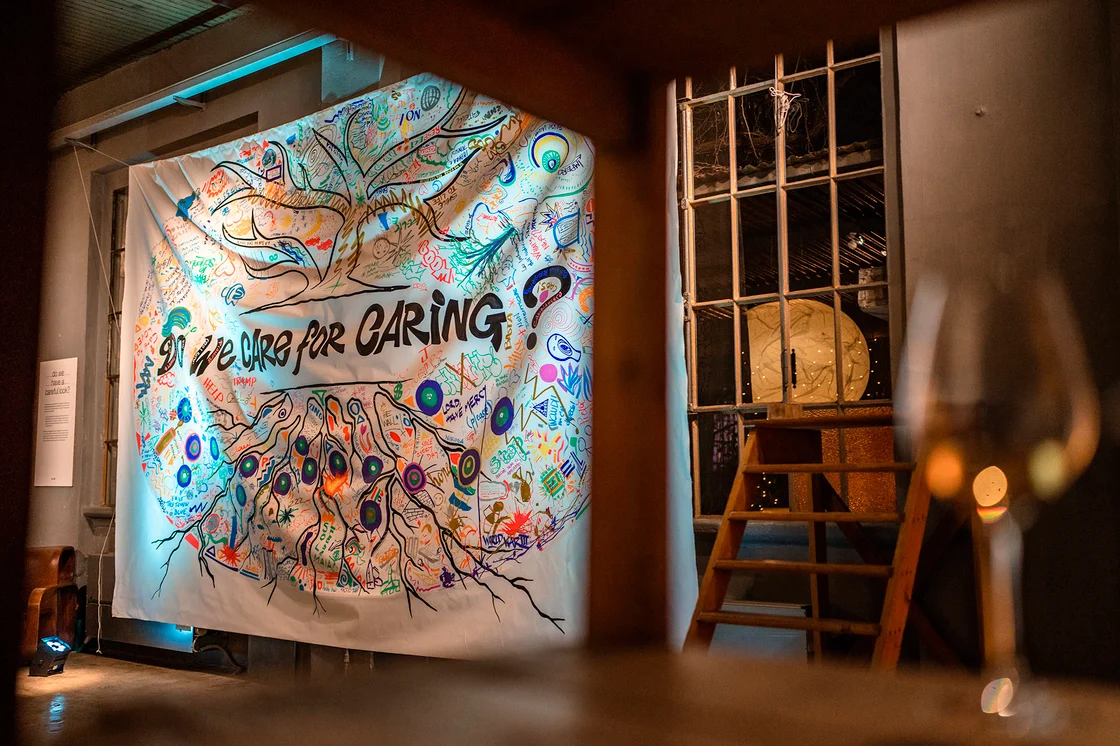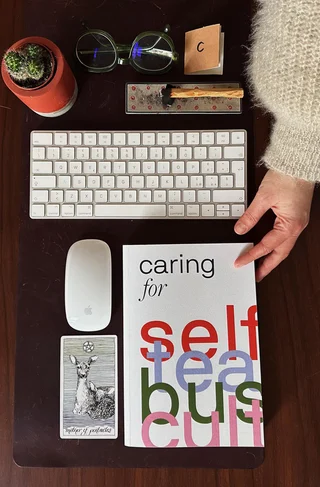
We often associate care with a delicate gesture, an individual attention — and sometimes it is.
But within organizations and groups, care is a structural force: the invisible cement that holds together people, goals, and visions. Today more than ever, looking at what is happening in the world, we need to rethink it, because care is not just a gentle attitude but a competence that transforms. Care is not suffocating protection, it is not passive caretaking, it is not only individual wellbeing. Care is about training courage, cultivating mutual responsibility, building spaces where people can remain whole while working together. It is a strategic element, a living resource that makes organizations stronger, more responsive, more human.
Care for oneself, care for others
Every process of change begins with those who inhabit it. We cannot talk about care within groups if we do not first recognize it within ourselves. What space do we give to our voice, our needs, our energy?
At work, the tendency is often to sacrifice oneself in the name of goals, productivity, deadlines. But when we forget ourselves, the risk is that we no longer have anything left to offer others. Care, instead, is a breathing dynamic: I inhale and exhale, I receive and I give back. A healthy organization is one that knows how to recognize the value of this vital exchange and creates the conditions for it to happen.
Care, then, is also a collective practice. It is knowing how to listen, but also knowing how to speak. It is leaving space, but also setting clear boundaries. It is learning to observe the group and understand when it needs rest, when it needs momentum, when it needs a new voice to shake things up. It is finding the right rhythm between autonomy and interdependence, between individuality and community.
Care is not an isolated act, but a system
A common mistake is thinking that care is something added on, like decoration on a structure that already exists. It is not so. Care is powerful when it becomes an integrated dimension of the system itself. Organizations that understand this do not limit themselves to including wellness breaks or motivational initiatives: they build structures and processes in which care is a founding principle.
For example, by recognizing the value of vulnerability. Not as a weakness to be fixed, but as a point of connection between people. Creating environments where one can say “I don’t know” or “I need help” without fear of losing credibility. Work is not just tasks and results. When people feel they belong to something greater, their commitment becomes more authentic.
Too often, people are physically in their workplace but mentally elsewhere. Training presence — in relationships, in decisions, in chosen words, in a network of shared responsibility.
An encounter that changed us
This was the heart of our conversation on January 28, during Wyde’s event dedicated to care: Wyde Night. It was a moment of genuine exchange, a shared time where we asked ourselves: what does it really mean to bring care into the places we live and work?
We heard stories from people who practice care every day. We recognized the need for a new vocabulary to describe it — one that can reshape how we work, create, and live together.
And we found confirmation of a truth we already sensed: today, those who know how to cultivate care hold a powerful advantage. Not only ethical, but strategic. Because people who feel seen and valued work better, innovate more, and stay longer.

Writing care to give it roots
On this theme, together with Wyde’s faculty, we wrote a book. Each contributor offered their own perspective, helping to build Wyde’s collective observatory on a subject that is deeply meaningful to us.
At Wyde, we speak about these ideas constantly. But we also turn words into action, designing pathways that make care practical and real. Wyde Night was another step on that journey.
Perhaps, after reading these lines, you find yourself reflecting on your own life, your work, your communities, and the people you meet every day.
So we’ll leave you with one question: how do you practice care?
With care, stay Wyde.






